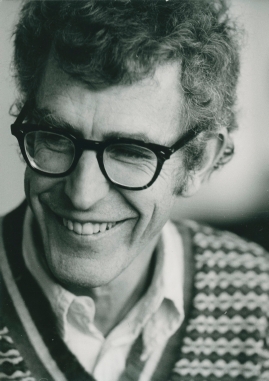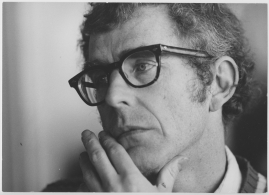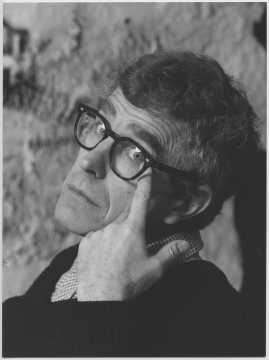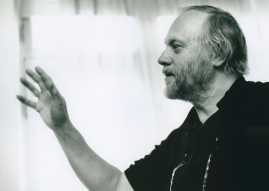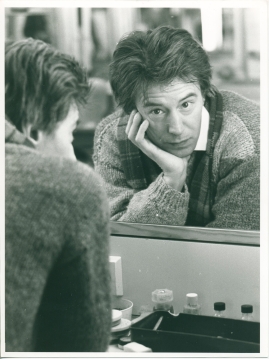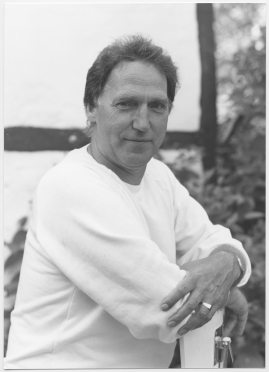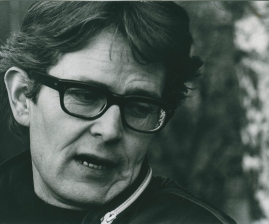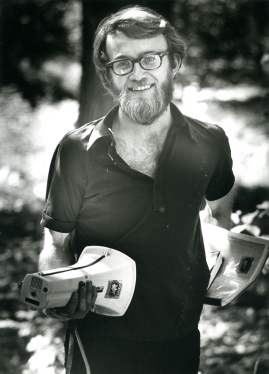Bo Widerberg
Table of contents
- Basic facts
- Links and resources
- Biography
- Awards
- Films
- Original work
- Soundtrack listing
- Groups
Basic facts
Media (3)
| Director |
|
|---|---|
| Screenplay |
|
| Show all films | |
| Awards |
|
Biography
Swedish director, writer and scriptwriter. Born as Bo Gunnar Widerberg in Malmö. Died in Båstad.-With influences from the French New Wave, Bo Widerberg heralded a change in Swedish film in the 1960s.Widerberg grew up in simple circumstances. His father Arvid had a late breakthrough as a naive painter, but when his son was growing up he worked as a driver. His mother Greta worked in a clothing factory. Widerberg matriculated from school yet did not enter higher education. Instead, he pursued his own studies with a prodigious appetite for...
Links and resources
Biography
Swedish director, writer and scriptwriter. Born as Bo Gunnar Widerberg in Malmö. Died in Båstad.
-
With influences from the French New Wave, Bo Widerberg heralded a change in Swedish film in the 1960s.
Widerberg grew up in simple circumstances. His father Arvid had a late breakthrough as a naive painter, but when his son was growing up he worked as a driver. His mother Greta worked in a clothing factory. Widerberg matriculated from school yet did not enter higher education. Instead, he pursued his own studies with a prodigious appetite for literature, music, art and film.
In 1952 he made his debut as a writer, and in 1962 he published "Visionen i svensk film" ('A Vision of Swedish Cinema'), in which he accused Swedish film of being insular and mummified. The same year he directed Barnvagnen ('The Pram'), about a young woman who gets pregnant and resolutely takes her life into her own hands. On its premiere in 1963, critics were quick to note that something new was happening. The film marked the start of a long, intensive and sometimes explosive collaboration with the actor Thommy Berggren. That summer found Widerberg shooting the film that would come to be regarded as his masterpiece, Raven's End (Kvarteret Korpen), the story of a small family with a father who drinks, a dutiful mother and a son who harbours dreams of becoming a writer in 1930s Malmö.
Widerberg's view was that Swedish film was too deferential, and that it placed a technically perfect appearance ahead of vitality in acting and cinematography. He urged cameramen to refrain from what was conventionally beautiful and correct, and declared that his favourite scene in Barnvagnen was one filmed in the Malmö city library, in which the star Inger Taube abandoned the script and started to improvise.
Part of Widerberg's method was to shoot a good deal of footage in an effort to get the actors to feel less intimidated by the camera, and to seek inspiration from existing environments. He then sifted through this material in lengthy editing sessions.
Bo Widerberg was innovator. His first film in colour, Elvira Madigan, was shot by Jörgen Persson almost exclusively in natural light, something most people at the time considered impossible. The film was a great success, bringing the director international acclaim. Adalen Riots (Ådalen 31), in which he combined realism and sensualism in his depiction of the shots fired on a workers' demonstration on fine day in May 1931, won the special jury prize at Cannes, and by the late 1960s Widerberg was widely regarded as one of the great European directors.
His insistence that everything should be born of the moment made planning his film shoots difficult. Acting was key for Widerberg: almost everything else he regarded as inferior, and this made working with other colleagues tricky. His habit of abandoning and then resurrecting films – such as the US production Joe Hill – and of not delivering on time, caused Widerberg to be regarded as impossible to work with. Despite the fact that The Man on the Roof (Mannen på taket) was a milestone in Swedish crime cinema, producers from the mid 1970s onwards were reluctant to work with him. During the 1980s Widerberg only completed three films. From then until his return to film with All Things Fair (Lust och fägring stor, 1995) he was also involved in theatre and television productions. Made with a Danish producer, this last film followed on from Raven's End and Adalen Riots in securing a third Oscar nomination for Widerberg.
In 1996 Widerberg founded Lilla filmfestivalen ('The Small Film Festival') in Båstad.
Mårten Blomkvist (2011)
(translated by Derek Jones)
Awards
| The Guldbagge Award | Stockholm | 1996 | Best Director | ||
|---|---|---|---|---|---|
| Prize | Stockholm | 1996 | (TV4:s (Nyhetsmorgons N.P.Sundgren/ pris Guldsolen) | ||
| Silberner Bär | Berlin | 1996 | (bästa regi) | ||
| Prize | Malmö | 1987 | (Malmö stads årets kulturpris: silverplakett+50.000 kr) | ||
| Nominated for the Guldbagge Award | Stockholm | 1987 | Best Director | ||
| The Guldbagge Award | Stockholm | 1969 | Best Director | (bästa regi) | |
| Swedish Film Society Prize | Stockholm | 1965 | (plakett) | ||
| Chaplin Magazine Award | Stockholm | 1963 | |||
| Stockholm | 1963 |
Films
Original work
| Author |
|
|---|
